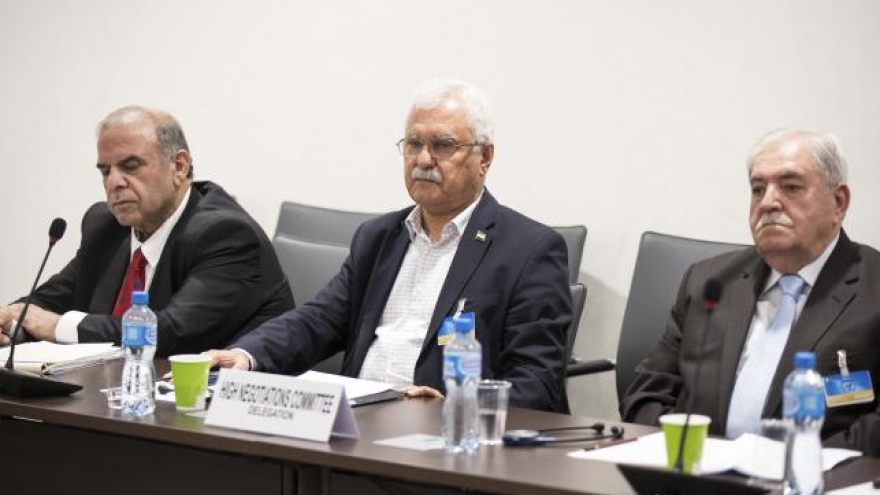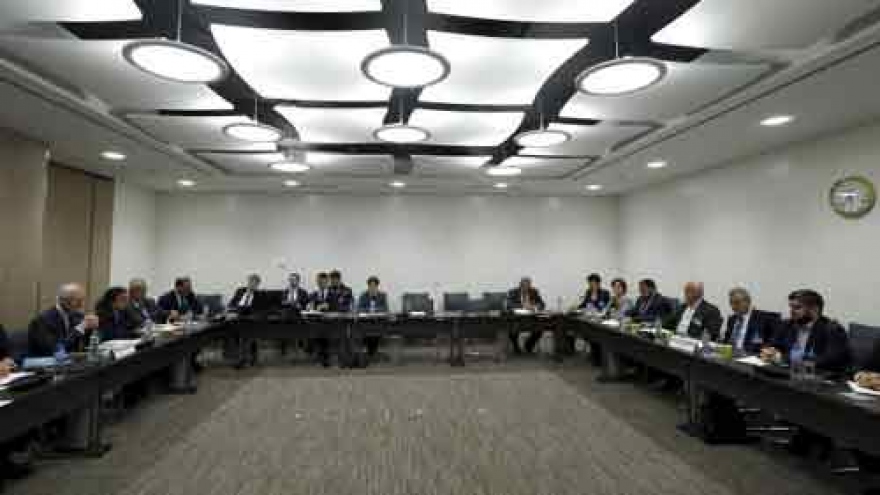Syrian talks appear doomed as air strike kills dozens in market
Syrian peace talks appeared all but doomed on April 19 after air strikes killed about 40 people in a crowded vegetable market in rebel territory, with the opposition saying a truce was finished and it would keep out of negotiations indefinitely.
 |
A monitoring group said it believed the strike on the market in Maarat al-Numan in Idlib province was the deadliest single attack since a partial ceasefire took effect on February 27.
The main opposition HNC described the attack as a "dangerous escalation" which reinforced its decision a day earlier to suspend negotiations. France described the bloodshed as "another massacre".
A rescue worker said warplanes had simultaneously struck markets in two towns in Idlib killing at least 38 people in Maarat al-Numan and 10 others in nearby Kafr Nubl.
"We have more than 20 cars that have been moving dead and injured to hospitals in the area," said Ahmad Sheikho, a member of the civil defense corps, a rescue service operating in opposition-held territory.
The air strike, accompanied by intense fighting in other areas, appears to leave the fragile six-week-old ceasefire in tatters. The truce was brokered by the United States and Russia to pave way for the first peace talks attended by the warring factions since fighting began five years ago.
Those talks, taking place under UN auspices in Geneva, were already close to collapse after the opposition called a pause on April 18.
"There cannot be a political process which prolongs the life of this regime. We will not accept this," said Riad Hijab, chief coordinator for the main opposition HNC bloc. "We will fight under all circumstances, even with stones. And never give up."
So far, the opposition has been careful to say it is not pulling out of the talks altogether. Some members of its delegation will remain in Geneva for expert-level talks on technical issues like humanitarian aid and swapping prisoners.
But Hijab said he himself was leaving Geneva. There was no chance of returning to the main talks while the government broke the truce, blocked humanitarian access and ignored the issue of detainees, he said.



